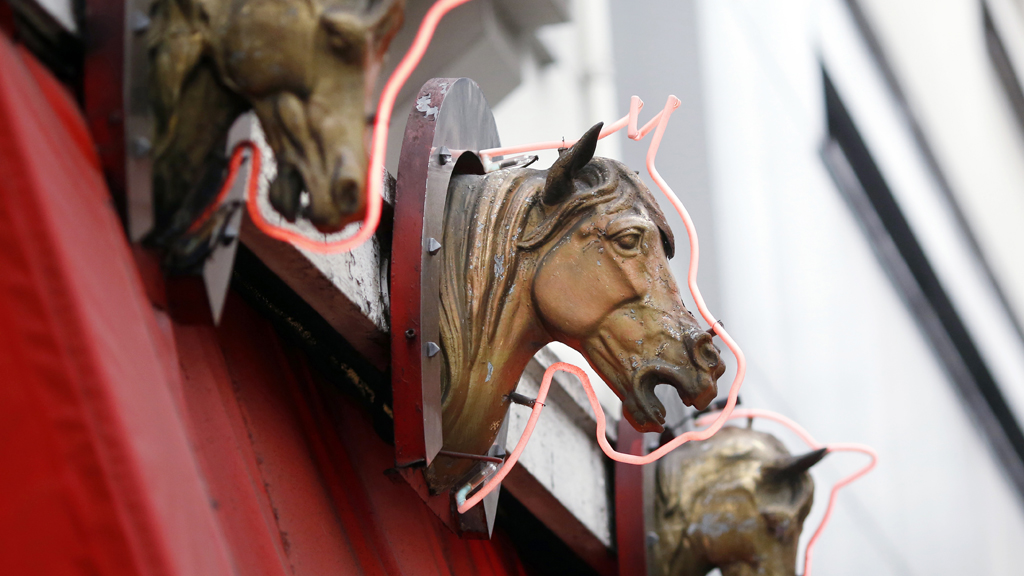Horsemeat scandal turns shoppers off processed meat
Six-in-ten consumers now buy less processed meat or fewer meat ready-meals as a result of the horsemeat scandal, says a survey by consumer group Which?

First it was frozen burgers, then Lindus lasagne, then Taco Bell ground beef – all well known brands that were found to contain horsemeat.
On Tuesday supermarket giant Tesco announced that it had withdrawn a fourth product after finding between 2-5 per cent of horsemeat in a line of frozen meatloaf. 600g packs of Tesco Simply Roast Meatloaf made at Eurostock in Craigavon between October 2012 and January 2013 have been withdrawn from sale.
The weeks-long scandal has sparked national outrage. And now a new survey by Which? has also found that it has made over half of consumers change their shopping habits.
Of those polled, 30 per cent now buy less processed meat, and 24 per cent buy fewer ready meals with meat, or choose vegetarian options.
The survey follows David Cameron’s comments to MPs on Tuesday that the Food Standards Agency (FSA), the government and retailers all had lessons to learn from the horsemeat scandal. But he denied that moving some responsibility from the FSA to the department for environment, food and rural affairs (Defra) had further complicated the chain of responsibility.
Half of consumers polled were no longer confident that ingredient information on food is accurate, and around two-thirds (68 per cent) do not think the government has paid enough attention to enforcing labelling laws.
These serious failings must be put right if consumers are to feel fully confident in the food they are buying once more. Richard Lloyd, Which?
As a result, Which? has called on the government to take five “urgent” steps to restore confidence and improve traceability.
These include more surveillance of food that is better co-ordinated between Defra, the FSA and local authorities, and the immediate scrapping of proposals to decriminalise failure to comply with food labelling legislation.
It also wants the food industry to improve traceability, labelling and testing of products, with the responsibility for labelling policy returned to the FSA from Defra.
Of the 2,064 people polled in late February, 83 per cent said that the country of origin should be required on the labels of meat products.
Confidence in food safety dropped from nine in 10 people, to seven in 10 feeling confident. Supermarkets are well-aware of the importance of customer confidence.
In an advert placed across the media on 17 January – prior to the discovery of horsemeat in its frozen meatloaf – Tesco said “We will find out exactly what happened and, when we do, we’ll come back and tell you. And we will work harder than ever with our suppliers to make sure this never happens again.”
Read more on the horsemeat scandal: the key questions
‘Crystal clear’ responsibility
“The horsemeat scandal exposed the need for urgent changes to the way food fraud is detected and standards are enforced,” said Which? executive director Richard Lloyd.
“These serious failings must be put right if consumers are to feel fully confident in the food they are buying once more.
“Ministers must ensure that everyone involved, including their own departments, the FSA, the food industry and local authorities, are crystal clear about their responsibility to protect consumers and are properly equipped to do so.”
Which? pointed to the split between Defra and the FSA as one of the causes of “unnecessary confusion and complication”.
But Defra said that the scandal was a result of criminal activity on a European scale.
“From now on, the food industry will publish results of its own testing every three months,” said a spokeswoman. “These tests are backed up by local authority officers who analyse upwards of 90,000 food samples across the country every year.
“We will work with the FSA and food businesses to learn lessons and to make any changes that are needed to restore and maintain consumer confidence in the food chain.”




